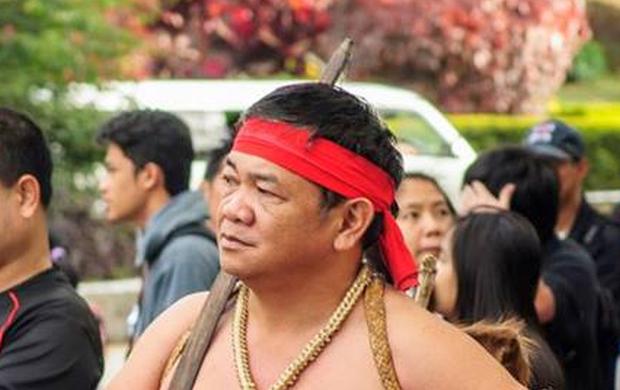
Roger Sinto Sr. (Photo from his Facebook page)
BAGUIO CITY — The city’s first indigenous peoples’ representative to the city council has been stopped by a local court from taking his seat – at least until Feb. 2.
Roger Sinot Sr., the designated Ibaloy representative, was supposed to join the council session on Jan. 22, after taking his oath last week. But he was barred after Executive Judge Maria Ligaya Itliong-Rivera of the Baguio Regional Trial Court issued a 72-hour temporary restraining order (TRO).
The court has extended the TRO for 17 more days while it hears two petitions for injunction filed by representatives of the city’s Ibaloy, Kankaney and Kalanguya families, who complained that they were not consulted about Sinot’s designation.
The other petition was filed by the city government represented by Mayor Mauricio Domogan.
The extended TRO prohibits the city government from taking any action that would recognize Sinot as a city council member. It also prohibits the appropriation of a budget for Sinot’s salary and his office.
Lawmaking bodies in towns, cities and provinces with a significant IP population are required by the Department of the Interior and Local Government to include an IP representative.
This is mandated by a memorandum circular issued by then Interior Secretary Jessie Robredo.
IP petitions opposing Sinot’s designation were filed in November and December 2016 following his selection by a council of elders.
Sinot has also been at odds with the city government since his expulsion as manager of a Baguio-owned Asin village resort in Tuba town, Benguet province.
He was also part of a conflict between families asserting their rights over a waterway and Baguio, which owns and operates a hydroelectric plant also in Asin.
The National Commission on Indigenous Peoples (NCIP) convened a review body in January to look into the matter.
In February 2017, the body recommended the affirmation of Sinot’s selection.